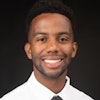When Nicole Lynn Lewis founded Generation Hope in 2010, she realized that her organization could be the first place that parenting students are ever told “Yes.”
“The families we serve go out into the world, in educational and community settings, where the answer is often, ‘No.’ They face a ton of red tape and are asked to perform their poverty time and time again to get their foot in the door to resources,” said Lewis. “When we design programming at Generation Hope, our direct and systemic change work, we want to be a place of ‘Yes.’ They don’t have to jump through hoops to get resources. The assumption going in is they’re brilliant and full of potential.”
 Nicole Lynn Lewis, founder and CEO of Generation Hope.
Nicole Lynn Lewis, founder and CEO of Generation Hope.
It’s why she and the board of directors at Generation Hope have decided on an ambitious five-year plan that will expand its work and impact over three million parenting students by 2029.
Lewis said that Generation Hope will cultivate leaders who can expand on the mission and dedicate themselves to the organization's Race Equity Blueprint, which acknowledges systemic racial inequity. The nonprofit organization plans to continue expanding its own workforce. Through intentional partnerships, Lewis said that Generation Hope plans to acquire more resources and share their message and data with institutions of higher education and policymakers across the country.
Already lauded as a national model, Generation Hope creates change through two actions: direct interventions with parenting students, and advocacy and systemic change efforts. Their direct interventions include their Scholar Program, which offers mentoring, tuition assistance, peer community, tutoring, and other wraparound supports to communities in the Washington, D.C., metro area and New Orleans, their latest regional expansion. Efforts to change policy use data collected through these direct points of contact as “proof in the pudding,” said Lewis.
“When we remove barriers, we see young parents and student parents do incredible things,” said Lewis. “We want to be proof point for advocates and scholars: when you do remove barriers, create intentional policies, believe in [parenting students], particularly in marginalized families, the sky is the limit. We can say this policy works, and here’s why.”
In many ways, the new five-year strategic plan is a continuation of the work already taking place behind the scenes. In 2021, Generation Hope had 15 employees. Now they have 48. They started direct service with seven teen mothers in the D.C. metro area. Now, after expanding to the South, Generation Hope’s Scholar Program reached 175 in D.C. and 35 in New Orleans. They’ve begun planning their expansion into a third city, yet to be decided, but likely another urban location in the South. That new community will include 25 teen parents.
One of the ways Generation Hope has tried to influence the system recently is by addressing gender biases in policy that often focuses on female single parents instead of fathers.
“Many times, what you see in policy, the default supports across many institutions are for mothers,” said Dr. Brittani Williams, director of advocacy, policy, and research at Generation Hope, describing how one student father said people confuse him as a babysitter when he is the provider.
Williams said Generation Hope has used direct methods to center policy focus on fathers, not to the exclusion of single mothers, she specified, but in recognition that males in college, particularly men of color, are more likely to stop out before achieving accreditation.
“Economic mobility is a core tenant in our mission and in our work, and at a time when the return on investment of college is coming into question, particularly in males of color — fathers — not persisting through to degree, we find we’re in a space to say, ‘Hey, these policies in place before have not done justice, have not been just support for our student fathers as well,’” said Williams.
 Dr. DeRionne Pollard, president of Nevada State University and Generation Hope Board Member.
Dr. DeRionne Pollard, president of Nevada State University and Generation Hope Board Member.
“Don’t just simply say, ‘I want to serve this population,’” said Pollard. “Ask how can you systematically understand your data, put together a work group to solve problems, prototype pilot concepts in ways that can be responsive, elevating students’ voices in the space of your institutions, and then starting to create policy.”
Higher education institutions need to be responsive to their students and instigate points of data collection along the way to know who their students really are, including parenting and caregiving students, she said.
“Generation Hope’s tagline is, ‘Families are the future.’ They are the future of higher education as well,” said Pollard. “This is about communities, about the economy, and about the safety and health and wealth of our nation. We don’t have the luxury of leaving anyone behind.”
Liann Herder can be reached at [email protected].






















